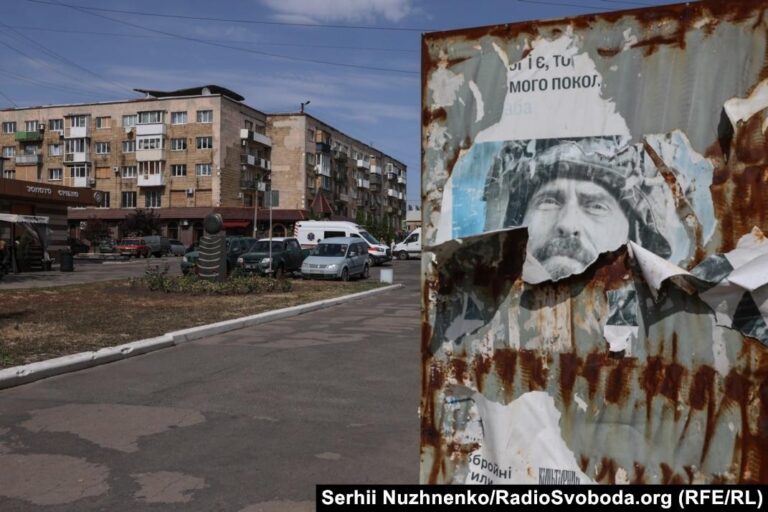The potential fall of Pokrovsk, a strategic city in eastern Ukraine, stands to reshape the dynamics of the ongoing conflict between Kyiv and Moscow. As Russian forces continue their offensive in the Donetsk region, control over Pokrovsk could provide a critical foothold, influencing military operations and the broader geopolitical landscape. This article examines why the city’s capture would be significant for both Ukraine’s defense efforts and Russia’s strategic ambitions.
The Strategic Importance of Pokrovsk in the Ukraine Conflict
Situated in the heart of Donetsk Oblast, Pokrovsk holds a pivotal position both geographically and militarily. Its capture would significantly disrupt Ukrainian supply lines, as the city serves as a major transportation hub connecting several frontline cities. Furthermore, Pokrovsk acts as a gateway for controlling access to the western parts of the Donetsk region, making it a strategic prize for Russian forces aiming to consolidate territorial gains. The city’s fall could lead to a domino effect, forcing Ukrainian troops into a defensive retreat and undermining the operational integrity of their eastern front.
Key factors highlighting Pokrovsk’s importance include:
- Critical rail and road networks essential for logistics and troop movement.
- Proximity to active combat zones, making it a frontline military command point.
- Influence over civilian morale due to its symbolic and strategic status.
| Aspect | Impact if Captured |
|---|---|
| Supply Lines | Severed or heavily disrupted for Ukrainian forces |
| Military Operations | Enhanced Russian maneuverability and offensives |
| Civilian Population | Potential displacement and alteration of control |
How Control of Pokrovsk Could Shift the Balance on the Eastern Front
Control over Pokrovsk represents a strategic fulcrum in the ongoing conflict on the eastern front, offering whoever commands it a critical advantage in mobility and supply routes. For Ukrainian forces, maintaining possession of this key city ensures the continued flow of reinforcements and supplies to frontline positions, while simultaneously serving as a buffer to prevent Russian advances deeper into the Donetsk region. Losing Pokrovsk would not only disrupt logistical chains but also risk undermining morale among Ukrainian troops and civilians alike, potentially leading to a broader shift in momentum during a period when territorial control remains fiercely contested.
Conversely, for Russian forces and their proxies, seizing Pokrovsk would provide a valuable gateway to expand their foothold and tighten encirclement tactics against Ukrainian defensive lines. Beyond immediate military implications, the city’s fall would carry symbolic weight, potentially invigorating support for Moscow’s operations while casting doubt on Kyiv’s ability to retain critical urban centers. The broader ramifications include the recalibration of frontlines, impacting:
- Supply corridor stability crucial for ongoing military campaigns
- Regional control over transport networks facilitating rapid troop movements
- Psychological impact on civilian populations and international observers
| Factor | Impact if Controlled by Ukraine | Impact if Controlled by Russia |
|---|---|---|
| Logistics | Ensures steady Ukrainian supply chains | Enables rapid Russian resupply and reinforcement |
| Strategic Position | Acts as a bulwark against eastern incursions | Serves as a launchpad for territorial expansion |
| Morale | Boosts Ukrainian defender confidence | Demoralizes Ukrainian forces and civilians |
Implications for Civilian Populations and Recommendations for Humanitarian Response
The potential fall of Pokrovsk would significantly exacerbate the humanitarian crisis faced by civilian populations in eastern Ukraine. With thousands already displaced, further loss of control is likely to trigger mass evacuations under harsh conditions, straining limited resources and safe passage routes. Key infrastructures, including medical facilities and water supplies, face heightened risks of damage or collapse, directly impacting the living conditions of residents. Protecting vulnerable groups such as children, the elderly, and the disabled will become a pressing concern, as access to basic needs grows precarious amid escalating hostilities.
In response, humanitarian agencies must prioritize coordinated efforts that address immediate safety and essential services. Urgent recommendations include:
- Establishing secure corridors for civilian evacuation and delivery of aid
- Scaling up mobile health clinics to reach isolated communities
- Ensuring continuous supplies of clean water and sanitation facilities
- Implementing psychosocial support programs to alleviate trauma
- Enhancing communication channels between local authorities and international organizations
| Humanitarian Challenge | Immediate Action | Expected Outcome |
|---|---|---|
| Displacement Surge | Expand shelter capacity | Reduced overcrowding, improved safety |
| Healthcare Disruption | Deploy mobile medical units | Continuity of critical care |
| Water Scarcity | Install emergency water purification | Prevention of disease outbreaks |
Future Outlook
The fall of Pokrovsk would mark a significant turning point in the conflict between Ukraine and Russia, with far-reaching military and symbolic implications for both sides. As fighting continues to reshape the region’s strategic landscape, the outcome in Pokrovsk could influence the broader trajectory of the war, affecting not only the immediate battlefield but also the political calculus in Kyiv and Moscow. Observers will be closely watching developments, aware that control of this key city may serve as a bellwether for future gains or setbacks in the protracted and complex struggle.




